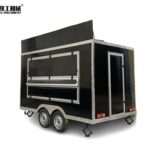Food cart trailer, often referred to as a concession trailer or catering trailer, is essentially a fully-equipped commercial mobile kitchen built within a towable trailer structure. It can be easily towed by a vehicle. The food trailer depends on a towing vehicle for transportation. It can be equipped with essential kitchen appliances according to our real needs, including grills, fryers, sinks, and storage cabinets, all within a compact and customizable space. This type of trailer is designed for cooking, preparing, and selling food on the go. Because of its compact size and mobility, it has become a favorite among small business owners, startups, and experienced chefs who want to expand their reach without the cost of opening a permanent restaurant.
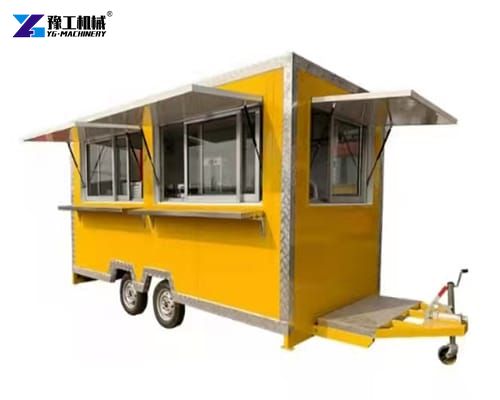
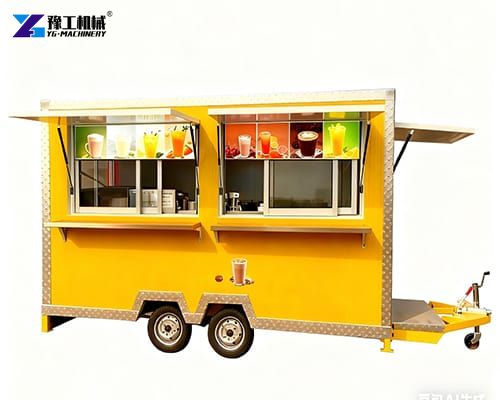
Technical Data of the Food Cart Trailers
| Model | Body Size |
| YG-300F | 3000*2100*2100mm |
| YG-350F | 3500*2100*2100mm |
| YG-400F | 4000*2100*2100mm |
| YG-450F | 4500*2100*2100mm |
| YG-500F | 5000*2100*2100mm |
| YG-550F | 5500*2100*2100mm |
| YG-600F | 6000*2100*2100mm |
| YG-700F | 7000*2100*2100mm |
| YG-800F | 8000*2100*2100mm |
Devices Optional and Work Principle of the Food Cart Trailer
- Cooking Equipment: Commercial-grade ranges, fryers, griddles, and ovens with proper ventilation systems
- Refrigeration Units: Walk-in coolers, reach-in fridges, and freezer units sized for daily inventory needs
- Sanitation Stations: Three-compartment sinks, handwashing stations, and wastewater management systems
- Power Systems: Generator-powered electrical setups with backup battery systems for critical equipment
- Safety Features: Fire suppression systems, emergency exits, and gas leak detection mechanisms
The workflow follows a linear progression from food preparation to service. Raw ingredients enter through dedicated service windows, move through preparation zones, undergo cooking processes, and exit through customer-facing service windows.
Uses and Applications of Mobile Food Trailer
- Street Vending: The classic model. Parking in high foot traffic urban areas, serving quick, delicious lunches to office workers and tourists.
- Catering and Private Events: Food trailers have become a hugely popular feature at weddings, corporate parties, birthday celebrations, and family reunions. They offer a fun, interactive, and delicious catering option.
- Festivals and Fairs From music festivals to county fairs, these events are a prime venue for food trailers, catering to large crowds in a festive atmosphere.
- Campus and Industrial Sites provide convenient meal options for students or employees in large, centralized locations.
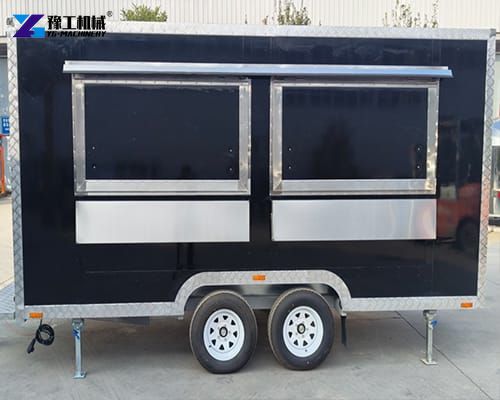
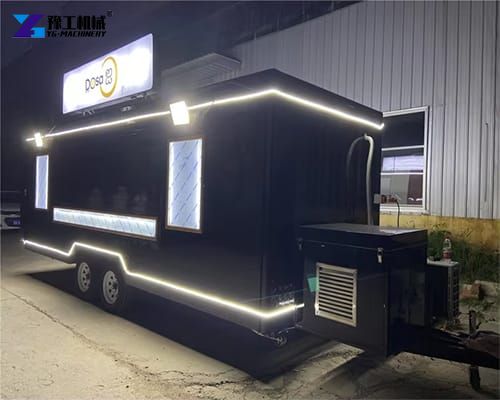
Features of Food Catering Trailer
- Mobility And Flexibility
Food cart trailers can be easily transported from one location to another. This flexibility allows business owners to test new markets, participate in events, or move to high-traffic areas during peak hours. - Compact Design With Full Functionality
Despite their small size, these trailers can include professional-grade cooking equipment, water systems, refrigeration, and even ventilation systems. The layout can be customized based on the menu and operational needs. - Cost-Effective Setup
Compared to traditional restaurants, food cart trailers require a much smaller investment. Entrepreneurs can start their businesses with less capital and achieve faster returns. - Customizable Appearance
The exterior of the trailer can be designed to match your brand image. Whether it’s a vintage coffee trailer, a modern burger kiosk, or a colorful dessert stand, customization helps attract customers and build brand recognition.
Structure and Composition of Food Trailer
The internal structure of a food cart trailer is carefully designed to ensure safety, hygiene, and efficiency. Typical components include:
- Chassis and Frame: The solid base that supports the trailer body, made of steel or aluminum for durability.
- Exterior Shell: Insulated panels that protect against weather and maintain temperature control.
- Flooring: Non-slip, easy-to-clean surfaces suitable for food preparation.
- Workstations: Stainless steel countertops for food preparation and serving.
- Storage Cabinets: Compartments for storing ingredients, utensils, and packaging.
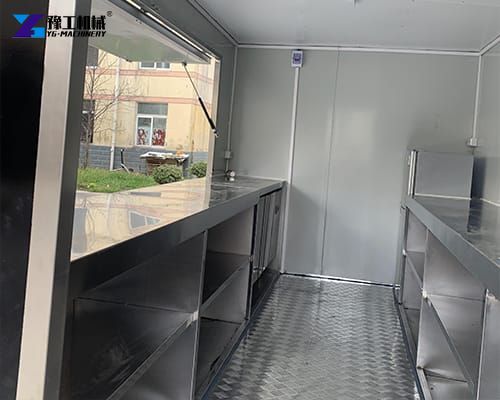
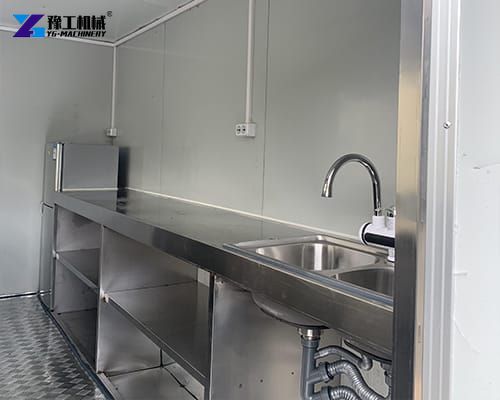
How to Choose A Food Trailer?
Choosing the right food cart trailer requires careful consideration of several key factors:
- Business Type and Menu
Determine what type of food or beverage you plan to sell. The layout and equipment will depend on your menu. - Size and Dimensions
Trailers come in various sizes, from small carts for snacks to large trailers for full kitchens. Choose one that fits your operational needs and towing capacity. - Material Quality
Ensure that the trailer is made with durable materials like stainless steel and galvanized steel for longevity. - Equipment Configuration
Select equipment that suits your food preparation process, and confirm that the trailer supports electrical and gas requirements. - Customization Options
Choose a manufacturer that offers design flexibility, branding, and layout customization.


